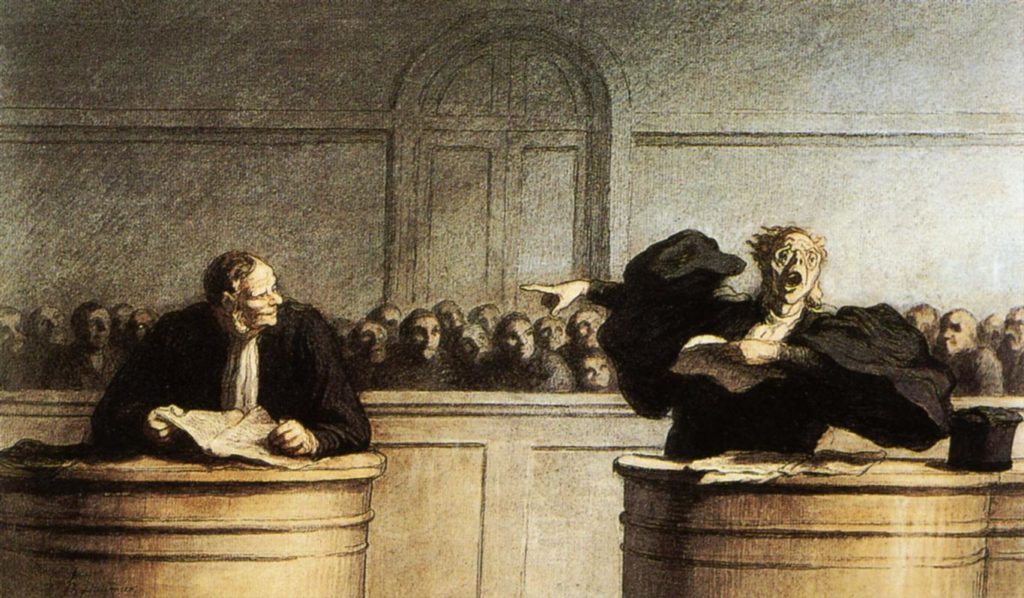In a few of our recent blog posts, we’ve delved into some of the complications surrounding long tail keywords, particularly their limitations in your legal marketing strategies. In essence, because there are so many possible long tail keywords out there, spending time targeting and then improving your ranking for specific keywords can be a waste of time because tiny changes in those targeted phrases can drastically alter your ranking. For example, one article in the Los Angeles Times that dealt with the recent rise in car accidents in the U.S. ranked first for the Google search “spike in car accidents across the country,” but seventh for the Google search “rise in car accidents across the country.”
These same ranking fluctuations impact vanity keywords in the legal field, as well, creating differences in the rankings of semantically identical web searches, like “Boston criminal defense attorney” and “Boston criminal defense lawyer.”
Which raises the question: If you can rank differently for web searches that merely substitute the word “lawyer” for “attorney,” which should you focus your law firm’s marketing efforts on?

After crunching the numbers for criminal defense and personal injury firms in a handful of cities around the country, we found that, based purely on search volume, criminal defense firms should focus on “attorney,” while personal injury firms should generally focus on “lawyer.”
Methodology: Google Trends
Google tracks every search that every person in the United States enters into its search engine. Obviously, some searches, like “Dallas Cowboys,” get performed more often than others, like “How can I make a cake without flour or eggs?”
Especially popular searches on Google reach the attention of the team in charge of one of Google’s more interesting tools, Google Trends. Every day, they compile visualizations and fascinating stories behind some of the hottest search topics that day.
Less exciting but no less important is how Google Trends lets you compare the relative popularity of certain keywords to each other. This tool tracks how often each selected search term was entered as a Google query over the course of the past year, gives the month with the peak popularity a score of 100, and then scores all the other months according to its relative popularity to the peak score.
For example, if you compare Keyword 1 with Keyword 2 in Google Trends, and Keyword 1 was scored at 100 in January, and Keyword 2 was scored at 50 in February, then you’d know that Keyword 2 was half as popular during that month as Keyword 1 had been, the month prior. If Keyword 1’s score during the following June was only 25, then you’d know that it was one-quarter as popular then, as it was back in January.
Using this tool, we compared the average popularity of vanity keywords for both criminal defense and personal injury law firms in geographically diverse cities in the U.S. over the past year. Using this data, we were able to glean important data on whether keywords using “attorney” were more or less popular than those using “lawyer.”
The Clear Winner in the Criminal Defense World: Attorney
Using this methodology, the data suggests that, in nearly all cities studied, criminal defense firms who rank well for the vanity keyword “criminal defense attorney” in their locale would reach a larger audience than those that rank equally well for “criminal defense lawyer.” Searches for “attorney,” on average, were 14% more popular than searches for “lawyer”:
The Strong Winner in Personal Injury: Lawyer
However, Google Trends results suggest that the opposite is true for law firms in the personal injury field. There, searches for “personal injury lawyer” outpaced searches for “personal injury attorney” by an average of 8%:
Conclusion: Using the Right Vanity Keyword Reaches a Wider Audience
From this data from Google Trends, it’s clear that you can target an audience 10-20% larger, simply by carefully choosing which vanity keyword you target in your firm’s online marketing efforts. This means doing the keyword research for your legal field and your locale, finding out which vanity keyword is used more often by potential clients in online searches, and then hitting that keyword again and again and again in your legal blog.
Caveat: Findings Only as Good as the Data
As with any study, though, the findings can only be as accurate as the data used to get there. We at Myers Freelance operate in the full awareness that there is a lot of misinformation in online marketing studies, and that raw and unbiased data is hard to find, especially in the macro sense. When that data comes from Google, itself – as in the case of Google Trends – it makes us especially skeptical because Google, as a marketing company, has a vested interest in making that data come out in certain ways to improve its apparent value.